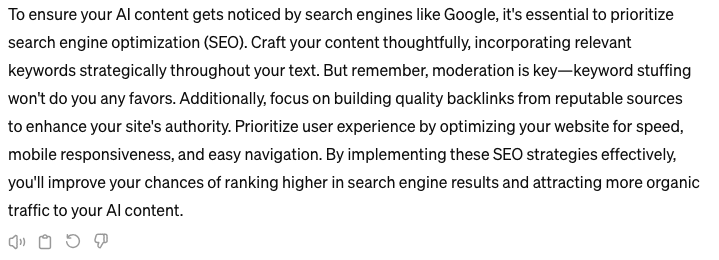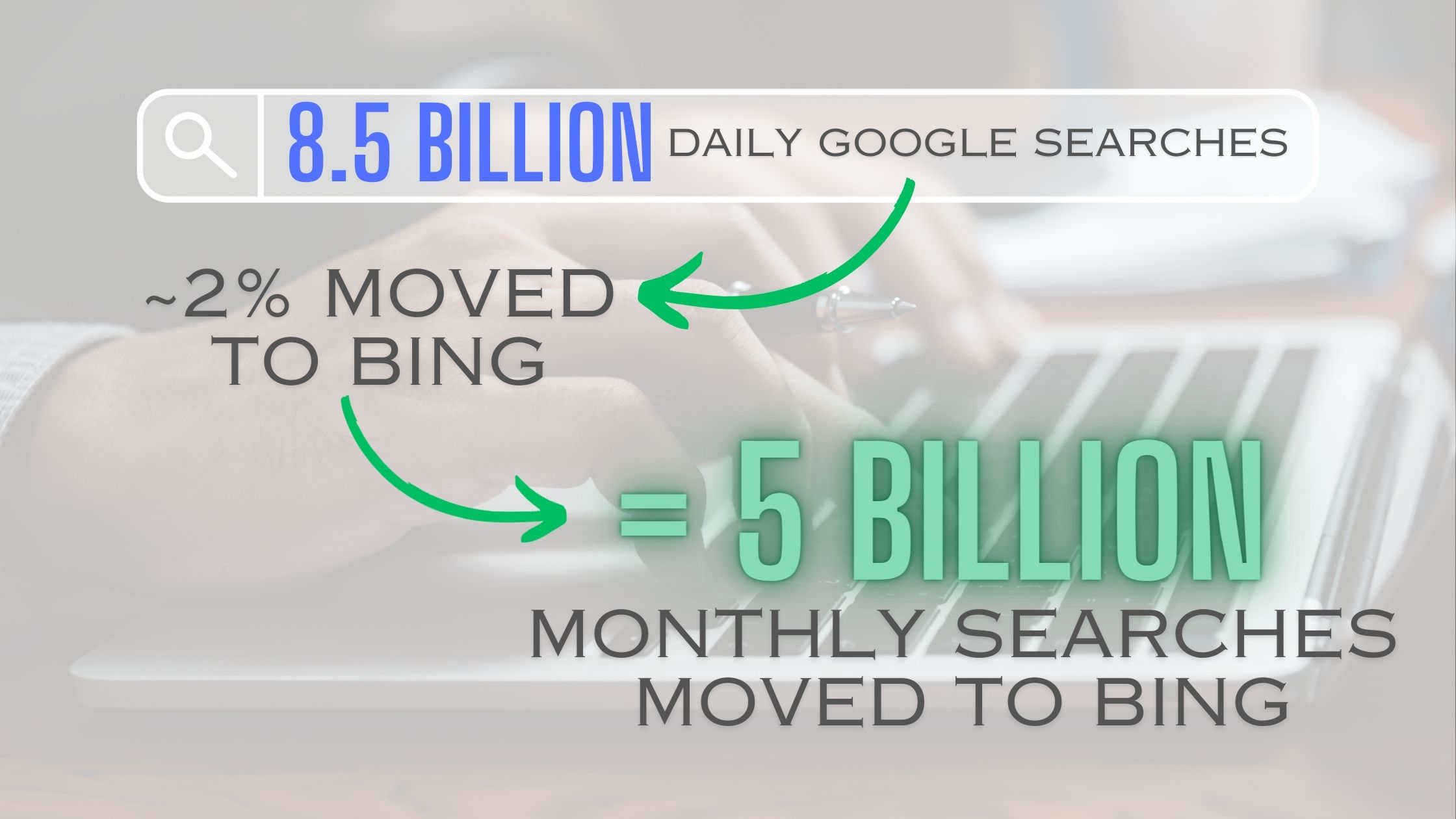 AI content is everywhere. That last news article you read? Very well could have been written with AI. (In fact, many news outlets are admitting to this right at the top of their articles.)
AI content is everywhere. That last news article you read? Very well could have been written with AI. (In fact, many news outlets are admitting to this right at the top of their articles.)
You might be surprised at how many businesses are using AI in their websites, marketing materials, ads, social media posts, job listings, emails, customer service, and more…
According to recent statistics, approximately 78% of companies use AI in some capacity.
Now, whether the world was actually prepared for this surge in AI content is a whole other discussion. But the fact remains—it’s here, and we need to talk about it.
You may be tempted to jump straight into AI content creation. (Maybe you already have.) After all, it’s incredibly convenient and the tools are all fairly intuitive.
But there’s a catch: EVERYONE has access to it. Your partners, your competitors, your employees, friends, neighbors, and, of course, that guy who keeps spamming your email inbox with sales pitches.
The ease of it has led to garbage content throughout the Internet. Lots and lots of spam.
So, does AI content work for SEO? The short answer is yes, kind of. It really depends on how you’re using it.
Does AI Content Rank in Google?
Yes, AI content ranks all the time in Google. And it has been ranking for years. In fact, Google’s own blog says the company strives to reward “high-quality content, however it is produced.”
AI-generated content can indeed rank, but the keyword there is quality.
We’ll discuss content quality in a later article, but here’s a quick overview of how to check for it:
Relevance: What is your audience looking for? Did you answer their question(s)?
Accuracy: Is the content correct? Up to date? (Some AI does not have access to information past 2021.) Have you linked to credible sources of information to verify any facts?
Engagement: Read through the content yourself. Out loud. Does it sound engaging? Would someone want to read it… and keep reading it? Is it easy to skim? Are there photos and images that assist with the content?
Clarity: Is the content easy to read and understand?
Originality: Is it original, or does it rehash the same (or similar) information already found at the top of the SERPs?
Value: Are you helping the reader?
Generative AI can accomplish all of the above. But it’s not a one-click-and-done kind of thing. You’ll almost always need to heavily edit AI content to give it a chance of ranking.
How Much AI Content is Acceptable?
There is no set rule on how much AI content is acceptable for search engines. I’ve heard of 100% AI sites that have risen to #1 for hundreds of keywords. (Though it seems Google tried to put a stop to that with recent spam and Helpful Content updates.)
If you want to use AI content, I recommend reviewing Google’s search quality raters guidelines and the Google Search Central Blog.
Using a little bit of AI? A ton? None at all? It doesn’t really matter. You should review all of your content for E-E-A-T along with the quality standards listed in the section above. That’s what Google (and other search engines too!) care about most.
How Do I Make AI Content SEO-Friendly?
Your AI content is only as good as your editing skills.
To make AI content SEO-friendly, you have to
- understand SEO as it works today (there have been a lot of shake-ups in the last 6 months), and
- know how to edit the content in a way that’s helpful, engaging, informative, and original
My biggest tip for using AI content is to use for ideas or use it as a rough first draft. Get a draft and then edit away. It probably won’t comeout at all like it started.
Here’s a quick before-and-after to illustrate. For reference, I asked Chat GPT to write a brief paragraph about making AI content rank in search engines. Here is a screenshot of Chat GPT’s response:

And here is the edited version:
“To rank AI content in Google SERPs, you have to prioritize content quality. Think about what you want to write, and incorporate keywords throughout. (Of course, keep in mind that keyword stuffing won’t do you any favors.)
But you can’t stop when you hit the publish button. You need links too! Quality backlinks from reputable sources can enhance your authority and make it easier for your content to rank.”
See what I mean? It’s almost an entirely new piece of content.
A little editing goes a long way in making your content more relatable and engaging.
The Importance of SEO Work in the Age of AI
The rise of AI doesn’t diminish the value of traditional SEO work; it transforms it. Understanding and optimizing content for Google’s Guidelines remains critical.
And with the addition of Google’s Search Generative Experience (SGE), SEO is becoming even more important.
AI can help streamline processes, but strategic keyword research, backlink building, content editing, technical fixes, and on-page optimization still require a human touch.
Embracing AI in your content strategy can be a game-changer, offering new opportunities for growth and engagement. However, it’s essential to use AI tools wisely, ensuring your content remains high-quality, original, and SEO-friendly. If you’re feeling overwhelmed or unsure where to start, periscopeUP can help. Call us at (443) 475-0787 or send an email to info@periscopeup.com. Together, we can craft a strategy that propels your business forward.







